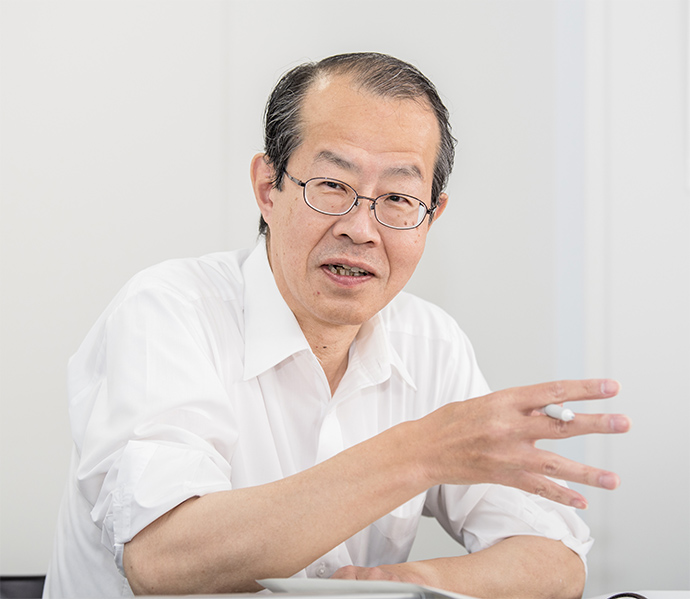- Home
- From Project Leader
From Project Leader

The University of Tokyo
Prof. ITO Shin-ichi
The ocean covers approximately 71% of the Earth's surface and is providing a variety of benefits (marine ecosystem services) to human-beings. These benefits include not only food supply, but also water reservation, decomposition of organic matter, moderation of climate, and cultures and therapies. Human beings have also benefited much from plastics, a stable material, although the time scale is relatively short, just over 70 years. But, because of the stable characteristic, plastic cannot be fully decomposed in the ocean, drifts on the sea surface, washes ashore, and degrades and breaks down into micro fragments called microplastics, which potentially have negative impacts on the marine ecosystem. The issue of marine plastic litter has been recognized internationally, “Osaka Blue Ocean Vision” to reduce additional marine plastic pollution to zero by 2050 was shared at the 2019 G20 Summit. This issue of plastic litter in the ocean was scientifically identified in the 1970s, but recent advances in research have increased international attention to the issue.
In particular, as featured by the missing plastic problem, in which the amount of microplastics floating in the ocean is less than the estimated amount of plastics entering the ocean, the behavior of microplastics has still undetermined and it is unclear how microplastics affect the marine ecosystem and living organisms in the ocean. In order to effectively take countermeasures against marine plastic debris, it is necessary to clarify the behavior of microplastics in the ocean and assess their impacts on marine ecosystems and living organisms based on our available best scientific knowledge. The University of Tokyo, in cooperation with the Nippon Foundation, started a three-year research project in FY2019 with the participation of several universities and research institutions. The second phase of the project for another three years was started in FY2022. Dr. Yutaka Michida had been leading the project as the project leader, and I became the project leader after Dr. Michida in FY2024. This research project will continue to focus on microplastics smaller than 1 mm. We will continue to improve our understanding on distribution and transport of the microplastics, and to evaluate their effects on living organisms and marine ecosystems. In addition to these natural science problems, we will also examine social science issues, such as measures to reduce the total volume of plastic waste and cooperation with local governments that are responsible for such reduction.
Plastic is a substance that has never existed in nature before and has been newly released into nature by humans in large quantities. The behavior of plastic in the ocean is undetermined and extremely complex, but we aim to provide as much as reliable science-based information to society by promoting interdisciplinary research. It should be a difficult task, but we will tackle this challenge in order to build clean ocean in the future by cooperating with domestic and international researchers and by exchanging opinions and information with many other people and collaborating with them. We will do our best.



